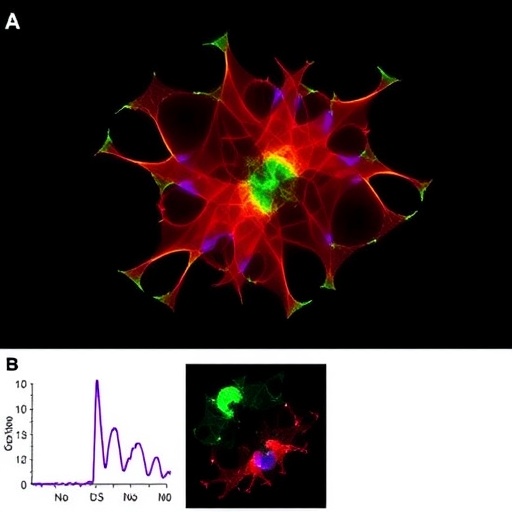
In a groundbreaking study, researchers have delved into the intricate perceptions surrounding suboptimal insulin dosing among individuals living with diabetes and healthcare professionals across Germany. Titled “Perceptions of Suboptimal Insulin Dosing from People with Diabetes and Healthcare Professionals in Germany,” this study highlights the pressing issue that many diabetes sufferers face: the challenges associated with achieving optimal insulin dosing. Insulin, a critical hormone for glucose regulation, can be a double-edged sword; while it is essential for managing diabetes, improper dosing can lead to severe consequences, including hyperglycemia and hypoglycemia.
The research team, led by A. Ponce-Ibarra, along with notable contributors such as N. Hennies and R.S. Newson, conducted qualitative interviews and surveys with both patients and healthcare providers. They sought to unveil the specific perceptions, misconceptions, and societal attitudes toward insulin dosing that may influence diabetes management in clinical settings. This multifaceted exploration reveals more than just healthcare practices; it examines the human emotions tied to diabetes management, such as fear, stigma, and social isolation, which can profoundly affect adherence to treatment.
One of the most salient findings of the research indicates a disconnect between the perceptions of patients and healthcare professionals regarding what constitutes optimal insulin dosing. Patients often described feelings of uncertainty and anxiety around their dosing regimens. In many cases, their self-reported experiences showed a lack of confidence in determining their insulin needs, largely influenced by prior hypoglycemic episodes. Furthermore, healthcare professionals highlighted that many of their patients seem hesitant to communicate their concerns and difficulties surrounding insulin management, often leading to an incomplete understanding of the patient’s therapeutic needs.
Moreover, the study sheds light on the significant burden of psychological factors that accompany insulin dosing. Many individuals with diabetes feel marked by their condition, grappling not only with the physical demands of managing their health but also with the societal implications of living with a chronic disease. This stigma could discourage patients from seeking necessary adjustments to their insulin treatment, potentially exposing them to riskier situations. The participants in the study articulated a need for greater emotional support and educational resources in navigating the complexities of insulin dosing.
The qualitative data revealed a consensus among participants that inconsistent communication poses a barrier to effective diabetes management. Patients expressed the need for more in-depth discussions with their healthcare providers about insulin dosing strategies, alongside a desire for personalized care. Many respondents felt that standard protocols often fail to account for their unique circumstances and lifestyles, suggesting there is an opportunity for more tailored treatment plans that account for individual variability in physiology and daily routines.
Furthermore, the research underscores the importance of ongoing education and reassurance as part of diabetes management. Patients emphasized that they would benefit from workshops or informational sessions dedicated to insulin dosing, highlighting the value of continuous learning about their condition. Such resources could empower individuals to engage more actively in their treatment, potentially leading to improved adherence and glucose control.
While the topic of insulin dosing is undoubtedly multifaceted, this study’s insights present crucial implications for healthcare providers. Training programs that emphasize empathy and active listening, as well as those that integrate behavioral health approaches, could bridge the perceived gap between patients and providers. By fostering a collaborative atmosphere, healthcare professionals can help diminish the emotional burdens carried by patients, while simultaneously enhancing the efficacy of treatment regimens.
In addition, the role of technology in managing insulin dosing cannot be overlooked. As digital health solutions continue to evolve, they offer promising avenues for enhancing diabetes care. Mobile applications and glucose monitoring systems provide real-time data that patients can share with their healthcare teams, potentially facilitating more dynamic conversations about treatment adjustments. However, this technological integration must be paired with a supportive framework that addresses users’ psychological well-being.
Despite the framework of clinical research provided by this study, it reiterates that diabetes management is not solely a clinical issue but a human experience. Understanding the psychological landscape in which patients operate allows for a more holistic approach to treatment. The emphasis on empathy, communication, and education as essentials for insulin dosing not only promotes better health outcomes but also honors the lived experience of individuals with diabetes.
The implications of these findings stretch beyond the borders of Germany. As healthcare providers and diabetes advocates consider patient education worldwide, the lessons learned from this study serve as a call to action. Addressing the disparities in perception and knowledge between patients and professionals can lead to improved healthcare policies and practices, ultimately benefiting individuals managing diabetes globally.
As we move forward, it is clear that a collaborative approach that integrates patient voices into the conversation about diabetes management is essential. Recognizing and validating the experiences of those living with diabetes can transform the landscape of care, paving the way for innovative and effective treatment strategies. This study is more than a report; it is a vital contribution towards cultivating a deeper understanding and support for those navigating the complexities of insulin dosing in their daily lives.
In conclusion, the perceptions surrounding suboptimal insulin dosing reflect broader themes of healthcare communication and the emotional journeys of people living with diabetes. By prioritizing these elements in clinical practice, we can foster an environment where patients feel supported and equipped to manage their condition effectively.
Subject of Research: Perceptions of Suboptimal Insulin Dosing from People with Diabetes and Healthcare Professionals in Germany
Article Title: Perceptions of Suboptimal Insulin Dosing from People with Diabetes and Healthcare Professionals in Germany
Article References: Ponce-Ibarra, A., Hennies, N., Newson, R.S. et al. Perceptions of Suboptimal Insulin Dosing from People with Diabetes and Healthcare Professionals in Germany. Diabetes Ther 16, 1727–1743 (2025). https://doi.org/10.1007/s13300-025-01767-y
Image Credits: AI Generated
DOI: https://doi.org/10.1007/s13300-025-01767-y
Keywords: diabetes, insulin dosing, healthcare communication, patient education, emotional support, diabetes management, Germany, psychological factors, stigma, technology in healthcare.
Tags: A. Ponce-Ibarra diabetes research findingsdiabetes patient-provider communication issuesemotional aspects of diabetes managementhealthcare professionals’ views on insulin dosinginsights from diabetes care studies in Germanyinsulin dosing challenges in diabetes managementmisconceptions about insulin useoptimal insulin dosing strategiesperceptions of insulin therapy among patientsqualitative research in diabetes carestigma and social isolation in diabetesunderstanding hyperglycemia and hypoglycemia risks




